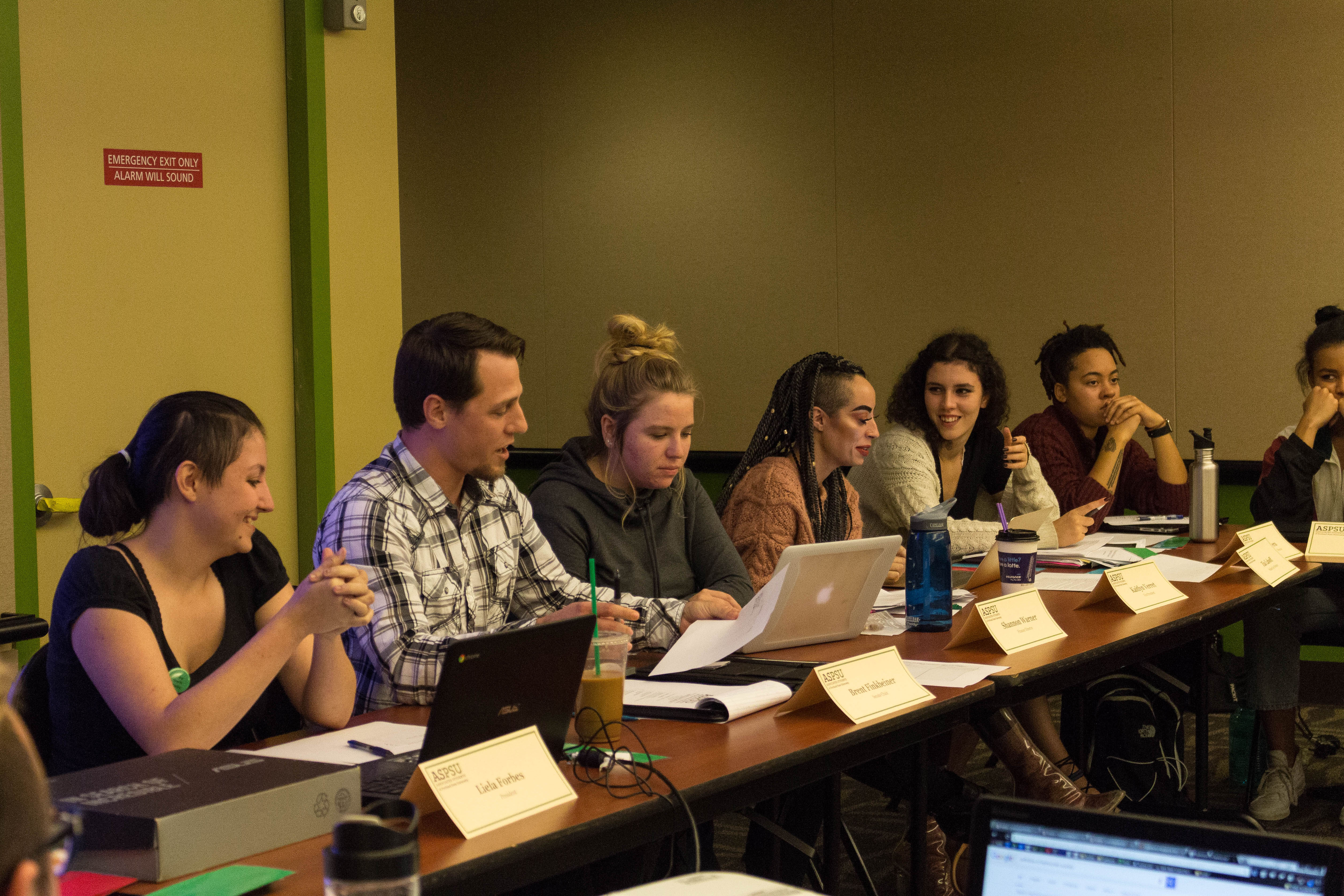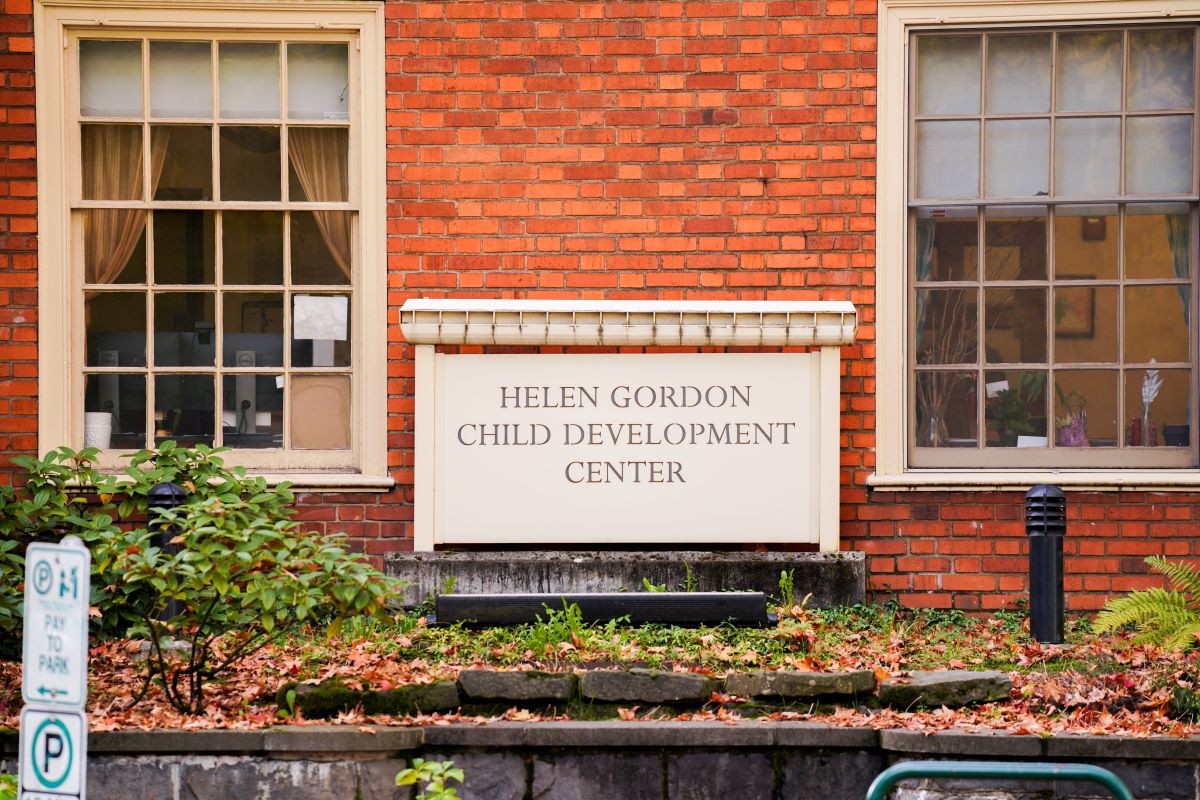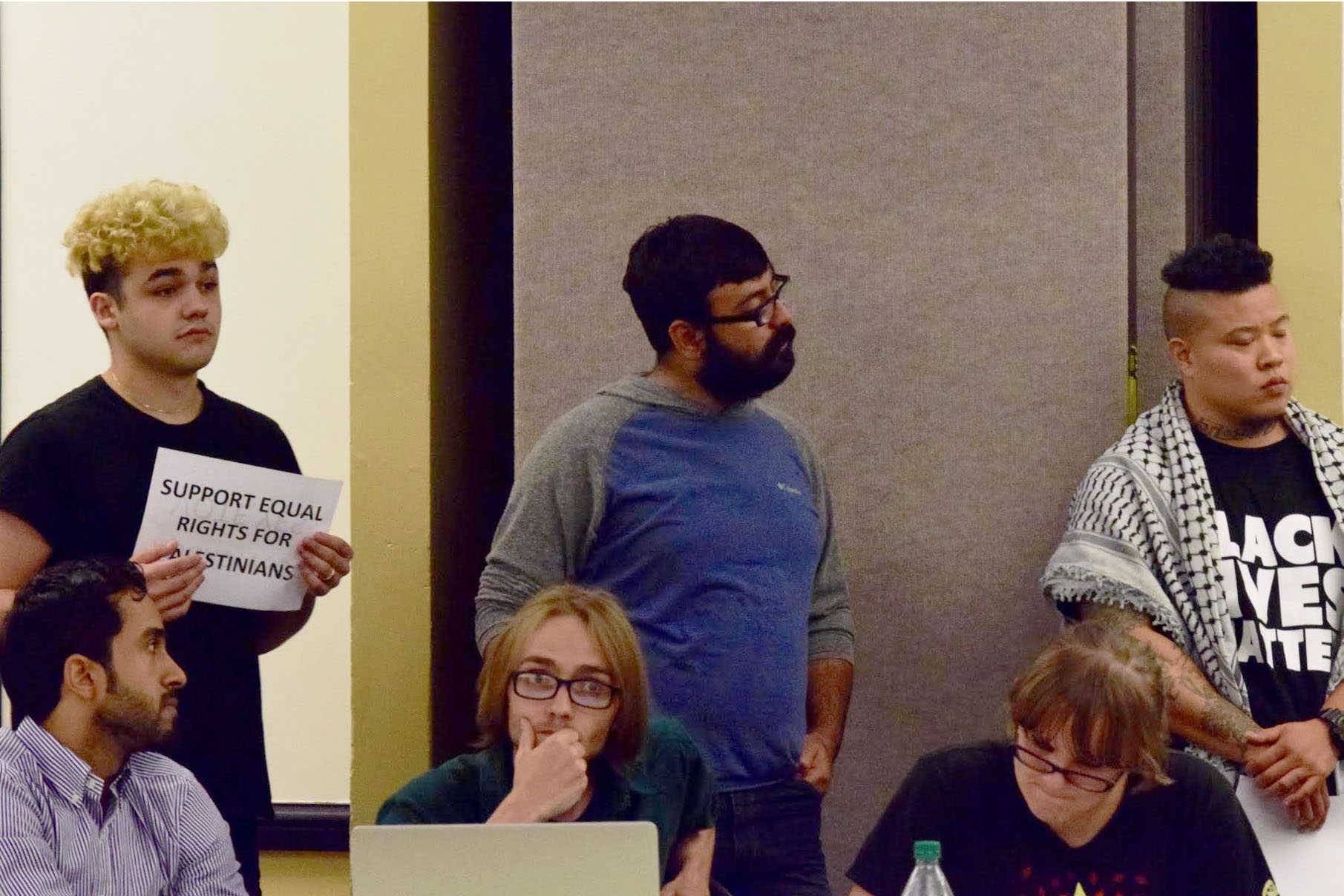Associated Students of Portland State’s Judicial Review Board heard appeals by student government members regarding failure to meet academic requirements on Feb. 1 and 10.
The 2016-17 ASPSU Constitution requires that undergraduate and post-baccalaureate students who want to participate in student government must maintain a minimum GPA of 2.50 quarterly and cumulatively; must be enrolled in six academic credits per quarter, not including incompletes; graduate students must maintain a minimum GPA of 3.00 quarterly and cumulatively, and must be enrolled in five academic credits per quarter. Credit requirements do not apply over summer term.
Eligible ASPSU members receive Educational Student Leadership Awards, which are scholarships applied to an awarded student’s PSU account. If tuition has been paid, those funds can be pulled out of the account and used for other purposes.
For ASPSU, ELSAs range from $700 per term for senators; $1500 for senators who chair a committee or work on the Student Fee Committee; chief of staff, vice president, president and SFC chair make between $1900 and $2700. Judicial Review Board members make $400 per term and the Chair makes $700. This is different from student employees, who go through payroll.
“ELSAs are for student leaders who have positions only a student can do,” said Assistant Dean of Student Life in Activities and Leadership Aimee Shattuck. “We could never hire a staff person to be student body president or a peer mentor. They have to have some sort of leadership component. They’re not staff and they’re not employees.”
Across campus multiple programs receive ELSAs, such as the Multicultural Center, International Student Services, Student Media, Leadership Fellows, Student Community Engagement Center, the Programming Board, and ASPSU.
Leadership Fellows has 110 filled ELSA positions, and out of those students, 10 (9 percent) in the last 12 months did not meet academic criteria.
ASPSU has 36 filled ELSA positions, and out of those students eight (22 percent) in the last 12 months did not meet academic criteria.
During winter 2017 there were nine requests for ELSA appeals. During winter 2016 there were six requests for appeals.
ELSA recipients who fail to meet academic requirements are allowed one appeal every 12 months. ASPSU is the only group allowed more than one appeal per calendar year.
“The ELSA process is one appeal. No exceptions,” said Coordinator of Student Government Relations and Greek Life Advisor Candace Avalos. “ASPSU is unique in that they are the only ones who have this process to allow appeals, and there’s no written limit on how many appeals one can have, whereas in a lot of other situations those students are just no longer in a position.”
The JRB, whose job is to address all constitutional questions, heard several appeals from ASPSU officers on Feb. 1 and 10, including Student Body President Liela Forbes, Student Body Vice President Kaitlyn Verret, and Chief of Staff Amber Hastings.
“This is something that I’ve been working with my professor on,” Forbes said. In addition, they have been using campus resources. “I feel that I’ve made a lot of improvements in terms of my academic confidence and abilities to get stuff done.” forbes was not able to bring documentation to the appeals hearing.
This is Forbes’ third appeal. “That definitely gives me pause,” said JRB Chief Justice Kate Lindstrom.
“I believe in [them], and I really want to give [them] another chance, but I feel we don’t have any documentation right now,” said Judicial Review Associate Justice Nhi Dao.
Vice Chief Justice of the JRB Joshua Friedlein questioned a positive change in the present term considering Forbes has academic work from prior terms to complete.
After discussions, the JRB voted 4–0 to decline the seat vacancy and reinstate Forbes to their position as president.
Verret was also being heard on a third appeal. Last term she withdrew from classes because of health issues. “This was a step recommended to me by the Care Team under the dean of Student Life,” Verret said.
Other concerns involved the 2016 spring ASPSU campaign.
“We had some threats and harassment from white supremacists that were directly targeted toward us,” Verret said. “The school knew about it. I didn’t feel like they took the correct measures to provide us with a program for safety. I no longer felt safe coming to class. There were threats of rape and murder targeted directly toward me. We were elected on a platform of social justice and equity. I think we’re doing some good work. I love this work; I’m dedicated to it.”
Lindstrom reported Verret is considered by many to be a wonderful champion for students. Verret’s commitment was not questioned, but the primary concern is keeping academics in line with the constitution. The JRB voted to reinstate Verret.
Hastings withdrew from classes last term. She explained that she was recovering from a car accident that happened a couple years ago which resulted in health issues. This was her second appeal. The JRB voted to reinstate Hastings.
Student government, through the JRB, is the only group that gets to govern over its own members.
“We have set up a system in which they’re the government and we’re letting them be semi-autonomous,” Shattuck said. “Constitutions are set up with the best intent. If student government, any government, chooses not to follow their own constitution, it’s a bit corrupt. If the system is set up in a way that the group making decisions is too close to the other students within that system, then it’s cronyism. ASPSU continuously never follows its own constitution when it comes to eligibility.” Thus far this hasn’t been a problem with other ELSA groups.
The ASPSU constitution is a living document that is reviewed every year. “One of the issues that I wanted to address in revising the constitution,” Lindstrom said, “is actually including a change that would bring ASPSU grade appeal policy in line with the ELSA policy so that there are consistent and clear policies across the board. It would not give the JRB any authority over ELSAs—we don’t touch anything to do with finances—but it would create the same one-appeal-per-term-of-office that the ELSA committee has.”
The grade appeals process exists to recognize that extenuating circumstances happen.
“I encourage students who have concerns about the grade appeals process to come to talk to us in the ASPSU office or to email myself or the president or the senators or show up at a senate meeting,” Lindstrom said. “The best way for students to let us know that they’re happy or unhappy is to talk to us through one of the many channels we have. We’re here to help students, and we can’t do it without input.”







ASPSU Grade Appeal Process is separate from the ELSA process. While ASPSU members can appeal their vacancy under the constitution they do not receive an ELSA which is essentially ASPSU members choosing to work without pay. To reinstate their ELSA pay they must proceed through the relevant ELSA process. This means at any given time ASPSU members may be working but ineligible to be paid under ELSA guidelines.
Which is to say, ASPSU is not the only program allowed unlimited appeals of the ELSA policy. They are allowed 1 just like every other student leader who receives the ELSA is. The Jboard has no role in distribution or retraction of ELSAs which is housed entirely with the Dean of Student Life.